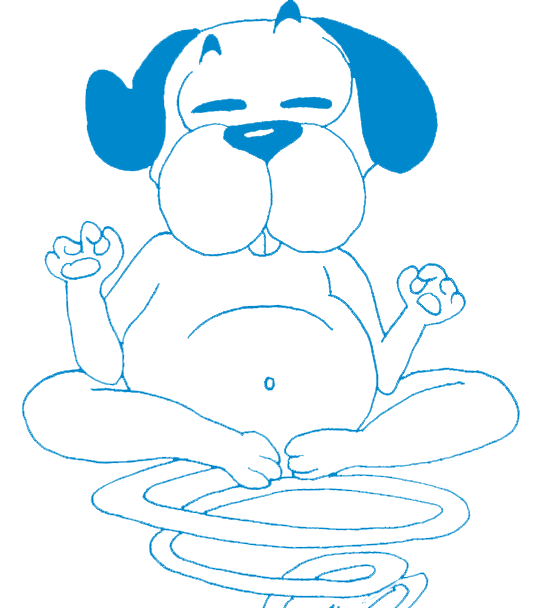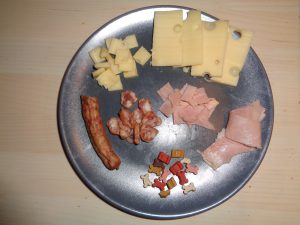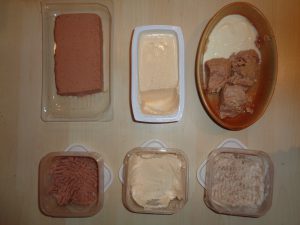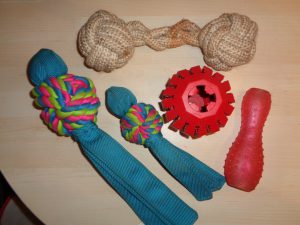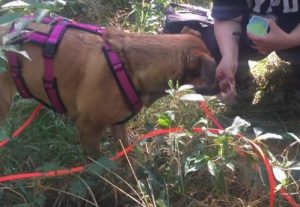Purpose
The purpose of the reward is for our dog to repeat a desired behaviour. We reward to enhance an action that our dog has taken. On the other hand, it is therefore important to ignore any undesired behaviour.
Quality
A reward is what our dog considers a reward. We can offer them verbal praise, treats, caresses, a toy,… Our dog will show us what he appreciates.
The reward statistically most appreciated by dogs is food. Beware that not all food is worth a reward. A dry biscuit may look very bland next to a small piece of very smelly cheese. There are however two exceptions: those who are not interested in the food (multiple causes: stress, distractions, toothache,…), and those who are so interested in the food that they are not able to concentrate on our requests.
|
|
|
Toys are exciting for most dogs. This reward is not suitable for games that require concentration. The toys can be used for search games (lost object, hidden object,…). When our dog has found his toy, he can keep it as a reward to play alone or with us. Under no circumstances will the toy be thrown for the dog to fetch.
Stroking requires skill on the part of the person giving it: not on the head, no “shampoo”, not approaching too quickly,… Some dogs do not appreciate being stroked, so let’s be mindful of what they like.
Verbal praise can be used alone or as a reinforcement of other rewards. However, we must pay particular attention to our intonations (a commanding voice or a cheerful voice do not have the same effect on our dog) and to the tones (a high voice is exciting, while a low voice is soothing). In an emergency, if we don’t have treats available, we can always praise, even from a distance.
Giving attention (laughing, looking, touching,…) is a reward. When our dog does something stupid and we smile and look at him, we show him attention. Let’s not be surprised if he repeats this mistake every time he wants us to take care of him.
Timing
With our body language and our verbal language, we will teach our dog to react in a particular way to certain requests (bodily or verbal): “bring back”, “give”, “leash”, “follow me”, “go towards”, …
In order to establish these situations, words or requests in the minds and memories of our dogs, we will have to confirm to them, to the nearest half-second, that their behaviour is exactly what we expected of them.
Reward timing is incredibly important. The time elapsed between our dog’s behaviour and the reward offered is as short as possible:
- the ideal timing is 0,84 seconds;
- up to 3 seconds, few dogs will still be able to link;
- more than 5 seconds makes the link impossible.
![]() Video: Reward for Diana during a discrimination game
Video: Reward for Diana during a discrimination game
Systematically or randomly
For something new to learn, each correct behaviour (the one that corresponds to what we expected) should be systematically rewarded.
Let’s not forget to continue to ignore unwanted behaviour.
As soon as our dog has understood what we expected of him (he systematically responds correctly to the same request), we can reward randomly: we reward or not, without any precise pattern. The aim is that our dog can no longer predict when he will be rewarded. If we reward every other time, our dog will quickly understand the reward pattern. Not rewarding any more would lead to the extinction of the expected behaviour.
Jackpots
Let’s also use jackpots: a reward offered for special efforts and on special occasions. This jackpot can take many forms:
- quantity: if I choose to reward learning a game with treats, my jackpot could be to offer several treats at once;
- quality: if I choose to reward with treats, my jackpot could be a bigger chew or to lick paté;
- variety: If I choose to reward with treats, my jackpot could be a toy;
- surprise: if we are caught off guard on a walk, we don’t have a toy or treat with us, we still have everything nature has given us: our voice, our body and our imagination. Small jumps, laughter, caresses can be a jackpot.
After a jackpot, the learning session ends. If we took the trouble to give a jackpot, it is because our dog’s behaviour was well worth it. Let’s stop at excellence, our dog will only remember it better!
|
|
|
- Let’s respect what our dog considers as a reward;
- The timing of the reward is critical;
- To reward systematically or randomly: each has its role;
- Let’s offer jackpots at strategic moments.

